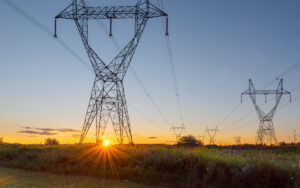Ontario’s Energy Minister Todd Smith is asking the Ontario Electricity Board to investigate the feasibility of a new, ultra-low overnight energy pricing structure, which could help support electric vehicle adoption

Ontario’s Energy Minister Todd Smith is asking the Ontario Electricity Board to investigate the feasibility of a new, ultra-low overnight energy pricing structure, which could help support electric vehicle adoption
The Ontario Energy Board (OEB) has officially been asked to investigate implementing ultra-low overnight electricity usage rates in a move that would directly benefit electric vehicle owners.
In a statement this week, Ontario’s minister of energy, Todd Smith, said he had written to the OEB late last year requesting an investigation into a lower overnight pricing plan for consumers.
“Introduction of a new ultra-low overnight price plan that would benefit shift workers and support EV adoption is our next step as we focus on helping electricity customers save money and take more control of their energy bills,” Smith said.
Lower prices would also maximize the use of Ontario’s excess overnight power generation, he said.
The ultra-low overnight pricing plan would join Ontario’s two existing electricity price structures — time-of-use (TOU) and tiered rates — and could be available to consumers by April 2023.
In the letter to the Ontario energy regulator, Smith cited a pilot plan created by the OEB that allowed participants to trade a higher on-peak electricity price for an ultra-low off-peak price.
The OEB’s report into the potential new plan is due this April. The government will also be taking stakeholder feedback and public consultation on the subject through the Environmental Registry of Ontario.
Off-peak benefits
Incentivizing a shift of EV charging to off-peak hours could increase grid efficiency and reduce emissions. Energy in off-peak hours is typically generated from non-emitting resources and would support Ontario’s plans to further decarbonize it’s already 94 per cent non-emitting grid, according to Minister Smith.
Roughly two-thirds of Ontario’s power comes from low-emission sources — primarily nuclear and hydro, which together provide provincial baseload capacity. But during peak hours these sources must be supplemented by other renewable sources or more expensive, more greenhouse gas-intensive natural gas to meet demand.
In his letter to the OEB, the minister requested the energy regulator outline price shifts across time periods and different seasons, estimate potential revenues as well as bill impacts on consumers, and any expected shift in peak demand — as well as potential risks to the provincial government from a new pricing structure.
Support welcomed by EV industry
The proposal was welcomed by EV industry non-profit president Cara Clairman.
“We know that about 80% of electric vehicle drivers plug their cars in at home at night,” she said in a statement.
“An ultra-low, off-peak rate makes so much sense as it does two important things — it makes driving an EV even more affordable and at the same time helps the province by making [use of] the surplus power available off peak.”
Boosting EV adoption in Ontario has become a recent policy plank for the current Conservative government. Four years after it scrapped the provincial EV purchase rebate, officials from multiple ministries have come out with a suite of EV objectives, including growing Ontario’s auto production by 400,000 new electric vehicles and hybrids by 2030 and making the province a critical jurisdiction in the EV battery supply chain.












